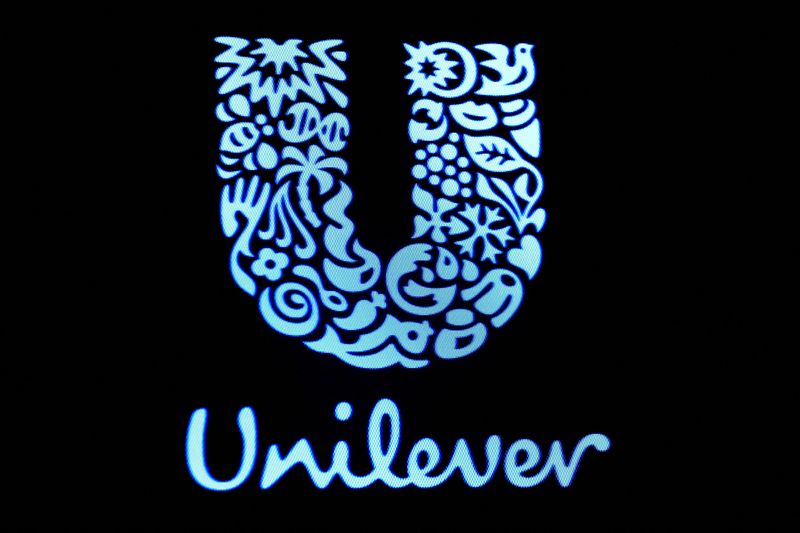Exclusive-Unilever overhauling European homecare supply chain, executive says
2024.10.07 11:40
By Richa Naidu
LONDON (Reuters) – Unilever (LON:) is spending over 150 million euros ($165 million) to revamp its European homecare business’ supply chain, a senior executive told Reuters, aiming to make up for years of underperformance and tap into young, post-pandemic shoppers.
Unilever’s European homecare business, whose brands include Persil and Omo detergent, and Comfort fabric conditioner, plans to make improvements including building factories and adding warehouses and new production lines to existing facilities. The push began in early 2023 and will continue into 2026.
The news comes months after the consumer goods giant was reported to be cutting a third of all office roles in Europe by the end of 2025 as a part of a push by CEO Hein Schumacher to revive growth.
A top company executive also told Reuters the European homecare business is increasing its promotion, research and development spending by 40%. Unilever did not disclose how much that amounted to in euros.
“We are completely redesigning our supply chain in Europe,” Eduardo Campanella, the head of Unilever’s global homecare business, told Reuters. He said the changes are helping Unilever reinvest in better products, store promotions and a new marketing strategy. The company is also deprioritizing some brands and upgrades to existing products.
“We have not invested properly in Europe because we were not growing. So it’s a chicken and egg problem.”
“Europe was quite stagnant and then the (company-wide turnaround) came as a shock of culture into this organization,” Campanella said, adding that the new strategy helped his business “rewire a little bit”.
Unilever’s global homecare business reported 3.3% underlying sales growth in the first half of this year. Campanella said Unilever’s Europe homecare business meanwhile saw nearly 13% growth in that period, about two-thirds of which was made up by sales volume growth. The company does not typically break out regional figures.
Unilever is growing ahead of the wider market, with Euromonitor International estimating the western European homecare market will grow 3.7% to $36.6 billion this year. The laundry detergent market in that region is estimated to grow about 3% in 2024.
Campanella said demand for some of Unilever’s European homecare products grew so unexpectedly the company has had to delay some innovations to next year because it couldn’t keep up.
He attributed the business’ growth to investments in new products that cater to changing consumer habits; for instance, a laundry detergent aimed at shorter washing times, or Cif cleaner advertised to Gen-Z shoppers for cleaning white sneakers.
“More than half of the total loads in Europe are short-cycle load, but not a single product was designed to address short cycle,” Campanella said.
He added that Unilever had pitched its new products to European retailers about two years in advance, hoping to woo them in the middle of a cost-of-living crisis that had grocers and consumer goods makers at odds over sky-high pricing.
Campanella said Carrefour (EPA:) asked to launch Unilever’s Wonderwash short-cycle product earlier than other French retailers. Unilever gained eight points of market share in its liquid detergents segment at Carrefour after the launch of the product, he added, going from being the second biggest player at that retailer to the first. Unilever’s biggest global detergent competitor is Procter & Gamble (NYSE:).
The product was also added to about 800 Tesco (OTC:) Express stores in Britain on its first day in the market, with Campanella saying the retailer was hoping to attract younger shoppers from smaller, urban households.

Carrefour and Tesco did not immediately respond to requests for comment.
($1 = 0.9066 euros)








